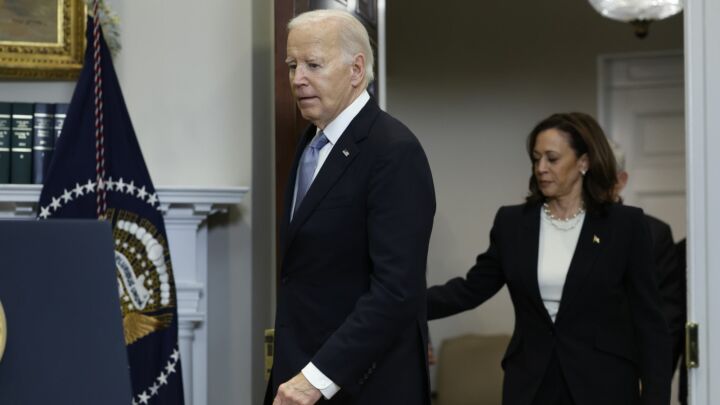Cut parents some slack
A new NHS campaign assumes that all mums and dads are dangerously incompetent.

Want to read spiked ad-free? Become a spiked supporter.
New parents tend to worry a lot. ‘Is the bath too hot?’ ‘Is the bottle too cold?’, we constantly ask ourselves. Yet, surprisingly, according to the NHS and other public-health wonks, parents still aren’t worrying enough. Apparently, every time you interact with your baby, their entire future mental health could be at stake. So you’d better get it right.
In March, the UK government announced a new NHS advertising campaign. Titled ‘If They Could Tell You’, its aim is to ‘support parents to help build secure bonds to help nurture their baby’s future mental health’. One of the adverts tells parents that they need to hug their babies because ‘feeling comforted and safe builds connections in their brains’. Another advert featuring a gorgeous little girl reads ‘I really fancy some peekaboo’, with a similar warning about the need for babies to develop brain connections.
Based on this campaign, you’d think no parent had ever touched or played with their child without first being told to by the NHS. Minister for public health Andrea Leadsom tried to justify this lecturing by claiming that ‘secure attachment between babies and their parents in the 1,001 critical days from pregnancy to two years old is crucial for their future wellbeing’. The message from on high seems to be that babies are ticking time bombs. That if parents don’t adequately giggle, smile, hug and coo from conception to toddlerhood, our children will grow up to be mentally ill.
This is clearly nonsense. Does the government really think that failing to play enough peekaboo will result in everlasting brain deficiencies?
Most parents don’t have an army of nannies and cleaners at their disposal. They know that family life cannot revolve solely around a baby. The cooing and cuddling take place in the gaps between washing and cooking, never mind the little time we have to shower and, heaven forbid, watch a bit of telly. This is how the overwhelming majority of children are raised, usually without any problems arising.
There are two flawed assumptions underlying the new NHS campaign. The first is that ‘early-years development’ is all-important. That a child’s fate is determined and sealed within the first few years of their life. That their entire future mental health, or career prospects, are shaped by interactions with their parents before they can even talk.
The other assumption is that most parents are simply incompetent and feckless. That if left to their own devices, they will apparently be a danger to their children. And so they are said to be in need of constant expert advice and guidance if they are to have any hope of raising a well-adjusted child.
We need to push back against this finger-wagging. We are in danger of turning parenting – that dreadful verb – from something that should be joyful and authentic into a tick-box project, where the failure to complete a certain task can supposedly damn a child forever. Women are told that not breastfeeding their toddlers will give them worse GCSE results. Or that not playing enough games with them could damage their brain synapses forever. Parents are being sent into a state of constant panic, fearing that the slightest mistake will cause their children life-long harm.
It’s clear how unhappy this kind of hectoring and surveillance is making young families. With a toddler in tow, I spend much of my time at playgroups with other mothers. Many of them live under the tyranny of apps, pamphlets and posters telling them what the optimal form of feeding, bathing and mothering should be. This kind of pressure sucks the joy out of being a mum. The irony being that if you’re worrying about the last time you played a ‘developmental’ game with your baby, you’re probably forgetting to enjoy all the actual development along the way.
Raising children is not a tick-box exercise or something to fear. It is a wonderful part of human life. If we really want parents to raise happy and healthy kids, we need to give them the space to breathe.
Ella Whelan is the author of The Case For Women’s Freedom, the latest in the Academy of Ideas’ radical pamphleteering series, Letters on Liberty.
Picture by: Alexander Grey.
To enquire about republishing spiked’s content, a right to reply or to request a correction, please contact the managing editor, Viv Regan.









Comments
Want to join the conversation?
Only spiked supporters and patrons, who donate regularly to us, can comment on our articles.